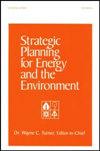尼泊尔中部农村家庭特征与能源供应
Q3 Environmental Science
Strategic Planning for Energy and the Environment
Pub Date : 2022-04-02
DOI:10.13052/spee1048-5236.4111
引用次数: 0
摘要
获得负担得起的、可靠的现代能源服务是可持续发展目标7的主要目标,也是有关改善健康和福利的其他可持续发展目标的基础。为了与可持续发展目标保持一致,各国政府和发展机构一直在倡导减少家庭对传统能源的依赖,并鼓励向清洁能源过渡。虽然这方面的政策干预取得了一些成功,但很大一部分家庭,特别是发展中国家农村地区的家庭,仍然继续面临能源短缺,无法获得清洁能源仍然是一项重大的发展挑战。本研究调查了尼泊尔中部三个村庄295户农户的能源使用情况。结果表明,家庭继续依赖传统能源,获得清洁能源的机会有限。此外,尼泊尔农村家庭获得清洁能源的机会取决于家庭和社区的社会经济地位。该报告认为,需要做更多的工作来增加家庭获得清洁能源的机会,减少他们对传统能源的依赖,并且需要适当考虑这些措施对分配的影响。本文章由计算机程序翻译,如有差异,请以英文原文为准。
Household Characteristics and Energy Provision of Rural Households in Central Nepal
Access to affordable, reliable and modern energy services is the primary aim of Sustainable Development Goal 7 and underpins other SDGs for improving health and welfare. In keeping with the SDG objectives, national governments and development agencies have been advocating reduction of households’ dependency on traditional sources of energy and encourage the transition to clean energy. Whilst policy interventions for this have had some success, a large proportion of households, especially in the rural areas of developing countries still continue to face energy shortages and lack of access to clean energy continues to be a major developmental challenge. This study investigates the energy use of 295 rural households in three rural villages in central Nepal. Results demonstrate that households continue to depend on traditional sources of energy with limited access to clean energy. Furthermore, access to clean energy amongst households in rural Nepal is determined by households and community socio-economic status. The paper argues that much more needs to be done to enhance households’ access to clean energy and reduce their dependency on traditional sources of energy and the distributional implications of such measures need to be properly considered.
求助全文
通过发布文献求助,成功后即可免费获取论文全文。
去求助
来源期刊

Strategic Planning for Energy and the Environment
Environmental Science-Environmental Science (all)
CiteScore
1.50
自引率
0.00%
发文量
25
 求助内容:
求助内容: 应助结果提醒方式:
应助结果提醒方式:


